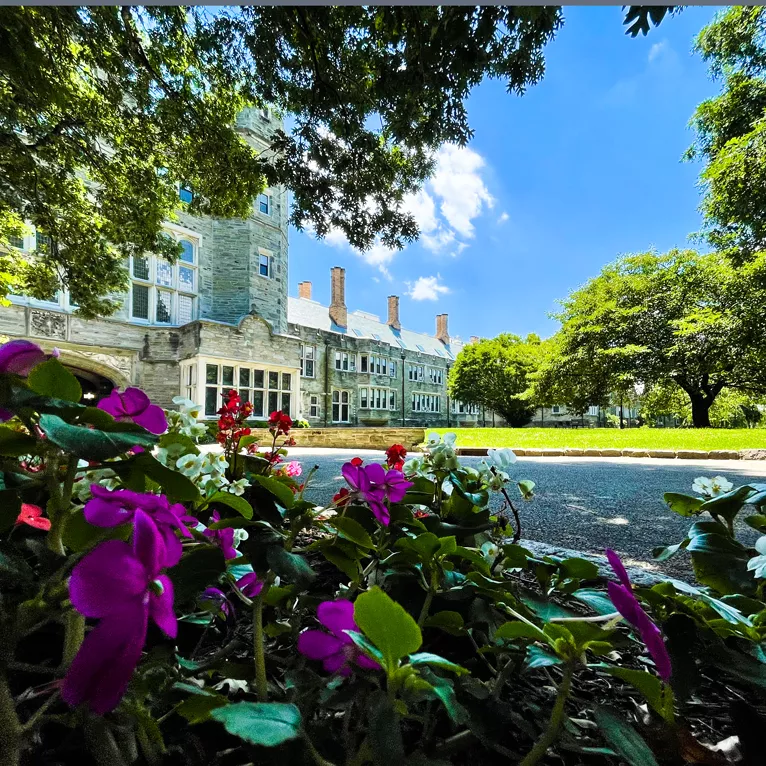Departmental Learning Goals
Environmental Studies Learning Goals
|
Environmental Studies Departmental Learning Goal |
Bryn Mawr Learning Outcomes |
|---|---|
|
1. A breadth of knowledge of environmental issues, methods, and history. Students graduating with a major in environmental studies will have a broad knowledge of multiple perspectives on many environmental issues, including an understanding of environmental methods and the history of these environmental issues leading toward the present. |
Research skills; ability to view problems from multiple perspectives; critical thinking skills; problem-solving ability |
|
2. Depth in a particular area of the study of the environment. An ENVS graduate will have a particular area of expertise that is synthesized from their course of study across the social sciences, humanities, natural sciences, and arts. This “focus area” is an area of concentration designed in dialogue with an academic advisor. |
Research skills; ability to view problems from multiple perspectives; critical thinking skills; problem-solving ability |
|
3. A deep understanding of many facets of the concept of environmental justice. An ENVS major will have a nuanced and detailed understanding of environmental justice and the forms that environmental justice takes and has taken throughout history. |
Research skills; ability to view problems from multiple perspectives; critical thinking skills; problem-solving ability |
|
4. Demonstrated community engagement in their work. ENVS majors are required to learn the theory and practice of engaging in ethically-sound community-engaged work. |
Ability to view problems from multiple perspectives; problem-solving ability |
|
5. Cultivated literacy in the social sciences, humanities, natural sciences, and arts. An ENVS major should be comfortable reading, interpreting, and understanding diverse materials, from a policy paper to a technical scientific report to a published poem. This includes qualitative and quantitative approaches to environmental issues. |
Research skills; quantitative ability; ability to view problems from multiple perspectives; critical thinking skills; problem-solving ability |
|
6. Effective written and oral communication skills. Communicating across disciplinary barriers is an essential skill for engaging with environmental issues, and ENVS majors will learn and develop effective written and oral communication skills. |
Writing skills; research skills; oral communication skills; critical thinking skills |
|
7. Demonstrated the ability to complete, with mastery, independent and collaborative work. From the introductory course (ENVS 101) to the senior capstone experience (ENVS 397), ENVS students are asked to demonstrate mastery in work done independently and in collaboration. Each ENVS class engages in both of these modes of inquiry and supports students to develop their independent skills. |
Problem-solving ability |
|
8. The ability to synthesize these perspectives, history, and knowledge into what we call “the ENVS view” of a problem. When faced with an environmental problem, rather than retreating into a single-perspective view (e.g., “That’s a policy question, and I’m just a scientist!”), an ENVS graduate will be able to discuss—with fluency—the complexities, tradeoffs, perspectives, and histories connected to that problem and represent the true breadth of Environmental Studies. |
Ability to view problems from multiple perspectives; critical thinking skills; problem-solving ability |

Contact Us
Bi-Co Environmental Studies
Bryn Mawr Point of Contact, Bi-Co Environmental Studies
Carol Hager, Bryn Mawr College Chair of Environmental Studies, 2025-2026
Professor of Environmental Studies and Political Science, Bryn Mawr College
chager@brynmawr.edu | 610-526-5328
Haverford Point of Contact, Bi-Co Environmental Studies
Joshua Moses, Associate Professor of Environmental Studies, Haverford College
610-896-1487
jmoses@haverford.edu